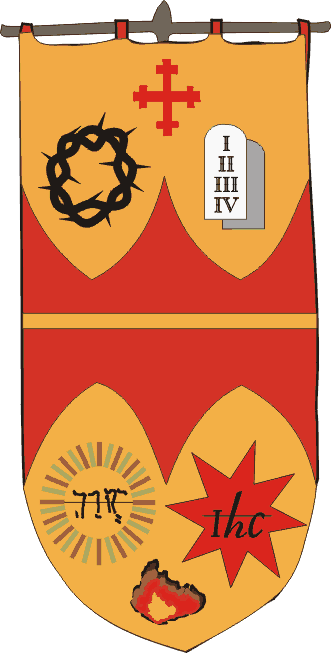The Heidelberg Catechism is based on Torah. This catechism is the most important doctrine of our church. It’s a basement for the right wing of the Dutch protestant churches.
It begins with a, for fellows of Yeshua, so lovely question about the purpose of life: “What’s your only comfort in life and death.” This points directly to the source of all the goods, G’d Himself who is called Love. (1John4:8 ) He enables us through rebirth and faith to obey and love Him with all our heart, with all our soul and with all our might. (Deut.6:5) This soul is put directly into Torah and Yeshua and wants to do according to His word as is written: “But the word is very near to you, in your mouth, and in your heart, that you may do it.” (Deut.30:14) and (as a consequence): “I will delight myself in your commandments, because I love them.” (Ps.119:47) That’s why he, the disciple, answered: “I’m not my own, but belong to my savior Yeshua.” Now I’m not doing works of myself, but with a new desire and a new life I will do the works of the Torah. Because the Torah resides in my heart now. (Jer.31:33) And I have a great desire to fulfill them, but I can’t do it on my own and therefore, baruch HaSjem, He enables me in Yeshua so I can do it. (Faith in yeshua works)
The second Q&A tells us about the three basic themes of the catechism. (Misery, Redemption, and Thankfulness.) The question is: things a believer has to know. The answer is that he has to know three points. These are all according to the Torah. Let’s take a look.
1. First, “How great my sins and misery are.” While the Torah is given as a set of rules and an instruction to live, we’ve become the knowledge of a righteous way of life and also we know when we diverge from it. That’s why Paul said: “I had not known sin, but by Torah.” (Ro.7:7) A similar reading of this part could be: First I have to know the Torah. Actually this part shows that we can’t fulfill Torah, because of sin.
2. Second, “How I may be delivered from all my sins and miseries.” This is obviously explained in Torah. Do teshuva, be part of the covenant by circumcision of the heart (Deut.10:16) and have a sacrifice for sin. All this become through faith. This section describes the salvation through faith in Yeshua. It begins with: “G’d will have his justice satisfied.” (Q&A:12) And explains we can’t do it, while it argued we need a mediator and deliverer, which is Yeshua: the sacrifice where the Torah pointed to. Also the sacraments are explained here.
3. And the third part: “How I shall express my gratitude to G’d for such deliverance.” That’s an interesting one for Messianics :-) Here we find we have to do good works. (Q&A:86) We have to do this because “we may testify our gratitude to G’d for his blessings.” And what are good works? “Only those which proceed from a true faith, are performed according to the law (Torah) of G’d, (Lev.18:4 is referred here) and to his glory; and not such as are founded on our imaginations, or the institutions of men.” (Q&A:91) And then “the law of G’d”, de ten words of the Torah are mentioned and a further explanation of each word. After that they deal with the prayer of Yeshua, Matt.6:9, which shares many with the Shemoneh Esrei.
About Lev.18:4 – אֶת-מִשְׁפָּטַי תַּעֲשׂוּ וְאֶת-חֻקֹּתַי תִּשְׁמְרוּ “Mine ordinances shall ye do, and My statutes shall ye keep.”
While this text is given here, it suggests to observe the whole Torah. But instead, it’s restricted to the ten words. (Q&A:91) Here appears an unclearness. Even though Lev.18:4 is mentioned, the observance is restricted to the 10 commandments. This catechism doesn’t mention about Saturday or Sunday, it just says Shabbat, the day of rest. The intention is to fulfill the Torah so they’ll do it as far as they know at that time and place.
Links: Heidelberg Catechism